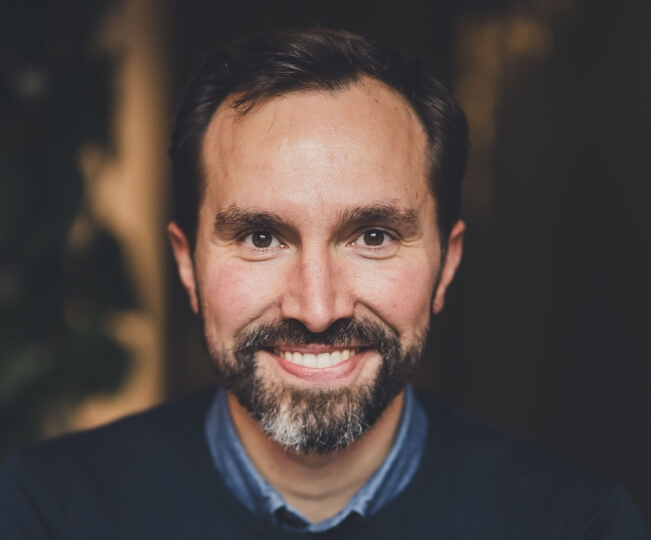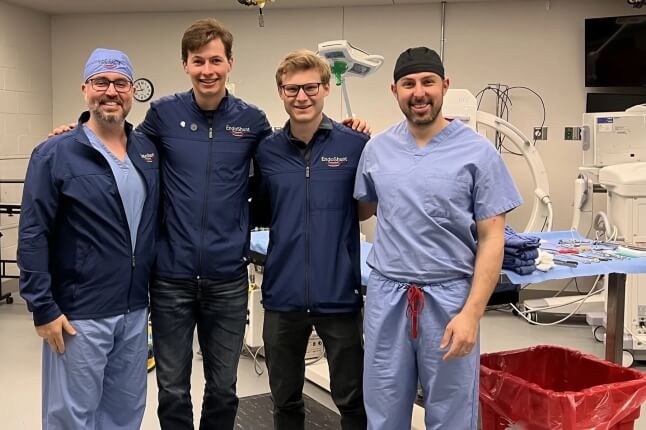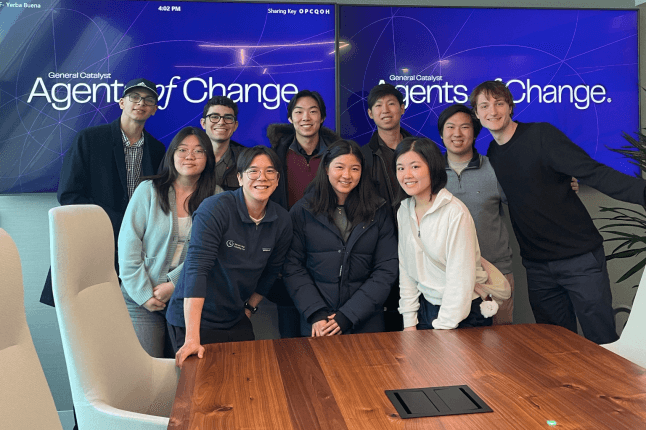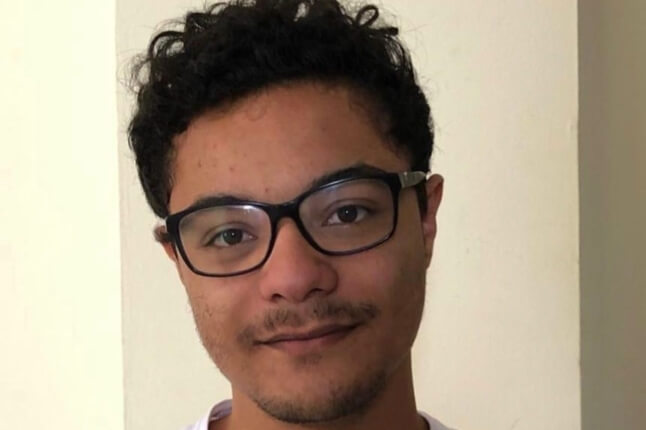News
Jacomo Corbo, Ph.D. '08
Growing up watching Formula 1 (F1) races in Canada, Jacomo Corbo would never have thought that machine learning or artificial intelligence could play a role in one of his favorite sports. Cars racing around tracks, with occasional stops for more fuel and new tires – where’s the machine learning in that?
As Corbo pursued his Ph.D. in computer science at the Harvard John A. Paulson School of Engineering and Applied Sciences (SEAS), he discovered that those two worlds were quickly coming together. The Alpine F1 Team (then Renault F1), a UK-based racing team, contacted him about using his research into algorithmic game theory and multi-agent systems to optimize their race strategy capabilities. Race strategy typically centers on deciding when a vehicle should pit for new tires during a race, a decision based not only on the tire degradation of the driver’s own car, but also on when competing drivers may decide to do it.
Corbo took a year off from SEAS and went to work figuring out how to use machine learning (ML) to better simulate and solve what is, in essence, a large optimization problem.
“They were doing these huge, computationally very expensive race simulations, and it turns out you can do away with all of that once you apply game theory and work out the structure of the game being played out,” he said. “More than that, I can get a lot of things wrong about estimating your car’s pace, vehicle degradation dynamics or other important parameters that characterize you as an opponent, and still predict what you’re going to do.”
Corbo’s research helped Renault win double world championships in 2005 and 2006, and even after returning to SEAS to finish his Ph.D., he stayed on as Renault’s chief race strategist. That experience taught him that machine learning and AI can benefit a broad range of industries, but that many organizations lack the expertise to implement the technology.
Both of the companies Corbo has founded since leaving SEAS, QuantumBlack in 2009 and PhysicsX just over a year ago, are based on the belief that with better tools and more accessible platforms, machine learning and AI can help optimize production across a range of industries.
“So many of the underpinning technologies and tooling used to build AI and ML systems have radically matured and improved in the last decade-plus,” said Corbo, Ph.D. ‘08. “The tooling has made it easier and less complex to build, deploy, and support ML systems with fewer and less specialist technical profiles, so that, in turn, more of these systems can permeate the operations of an organization. How to design operational ML systems in ways that are as accessible as possible to enterprise end users has been a big focus of both QuantumBlack and now PhysicsX.”
QuantumBlack, which was acquired by the consulting firm McKinsey in 2015 and now numbers more than two thousand practitioners globally, is an AI engineering services company that builds enterprise AI systems across a wide variety of industries and domain applications. PhysicsX, which is based in London and New York and recently raised its Series A and has about 75 employees, is building an enterprise computing platform designed to bring large-scale AI physics simulation, sometimes called foundation models, to some of the most complex design, manufacturing, and process engineering applications across industrial research and development.
“We are taking advantage of advances in geometric deep learning to build very good emulators of physics, which can accelerate the simulation by anywhere between ten thousand and hundred thousand-fold,” he said. “That makes them incredibly valuable to the most complex engineering problems across industries – including aerospace, automotive, semiconductors, and materials processing, like hydrogen, lithium, copper and aluminum production. These are all applications at the very frontier of engineering.”
It’s incredibly gratifying to be building technology that is playing a part in improving the most important physical systems of our time.
Corbo joined SEAS after finishing an undergraduate degree in electrical engineering at McGill University and studied under David Parkes, now Dean of SEAS.
“My time at Harvard was an incredibly magical time,” he said. “The electrical engineering and computer science departments at that time were small, but there was a lot of collaboration and a real appreciation for interdisciplinary research even beyond SEAS. Much of my own doctoral work was at the interface of computer science, economics, and electrical engineering. I was extremely lucky to have had David as an advisor, because of his very hands-on style, the very close collaboration he forges with his students that is a hallmark of his mentorship style, but also his openness to new methods and lines of inquiry.”
Having such a positive experience at Harvard has impacted how Corbo recruits at his own companies. He seeks out applicants with doctorates because of their ability to work collaboratively on larger projects while self-directing their own knowledge acquisition in specific areas. He also prizes the resilience that many doctorates will have developed over the course of their doctoral studies.
“A lot of things we’re working on are tied to solving new problems, and problems that will require teams to really think about how to break problems down into building blocks, each with their own specific solutions,” he said. “Someone who’s completed a Ph.D. is in a very good position to do that. It’s something of a superpower that you acquire. At the same time, these individuals are accustomed to failure, to chipping away at a problem in a number of different ways with no guarantee of success, and that’s experience that’s incredibly important to bring to a team that is committed to working on hard problems.”
Corbo is still working with an F1 racing team in his capacity as CEO of PhysicsX.
“I’m just surprised that nearly twenty years on, F1 is still shaping what I do,” he said. “F1 is such a fast-moving and hyper-competitive world. Every team recognizes that relative performance hinges on bringing new ideas and technologies to car development, and that’s how I’ve tried to spend most of my career: experimenting at the vanguard of ML to get to better engineering outcomes.”
Topics: AI / Machine Learning, Computer Science
Cutting-edge science delivered direct to your inbox.
Join the Harvard SEAS mailing list.
Press Contact
Matt Goisman | mgoisman@g.harvard.edu



